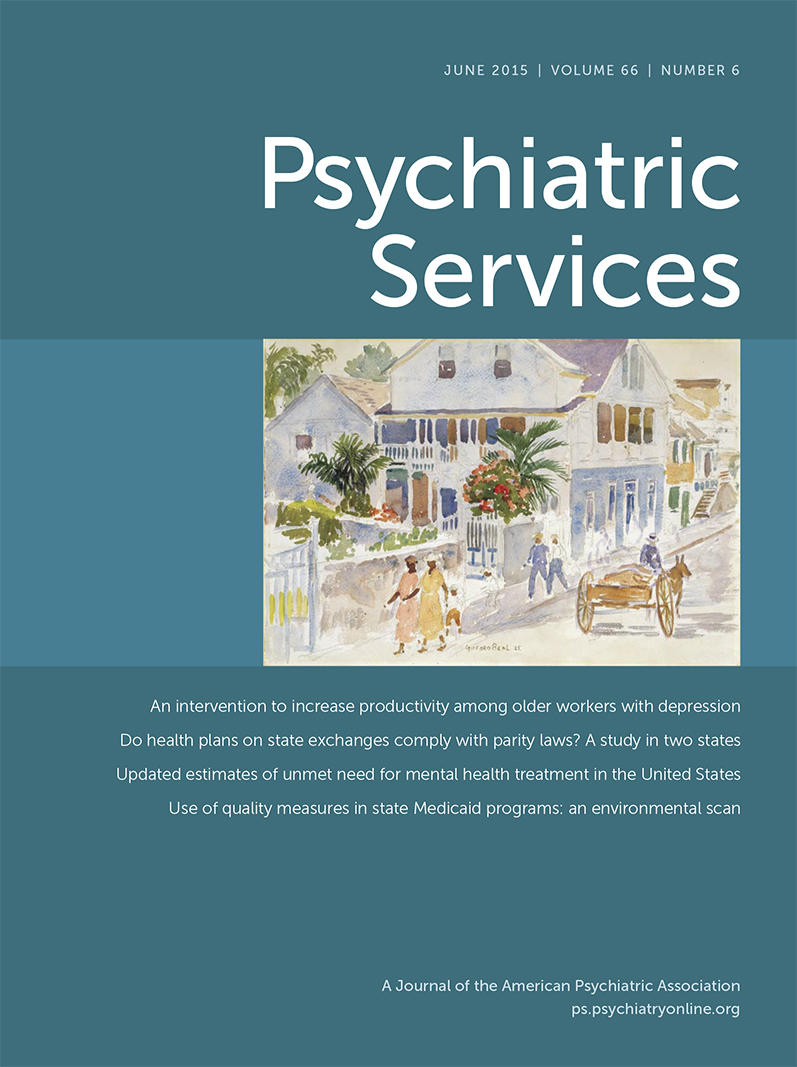This Month’s Highlights
An Intervention for Depressed Older Workers
Middle-aged and older workers with depression were more productive at work after they completed a phone-based intervention that focused on restoring their work functioning. The multisite trial, conducted by Debra Lerner, M.S., Ph.D., and colleagues, randomly assigned workers age 45 and older who screened positive for depression and lost work productivity to the work-focused intervention (WFI) or to usual care (referral to a health care provider or an employee assistance plan). Each WFI participant was allocated up to eight 50-minute telephone sessions every two weeks with a specially trained clinician. The WFI helped employees to develop strategies for coping with thoughts, feelings, and behaviors that interfered with work and to make changes in work routines or conditions to improve their effectiveness. Four months after the intervention, the researchers found that days absent from work had declined by 53% in the WFI group, compared with 13% in usual care. Depression symptoms improved significantly among WFI participants, compared with those in usual care. A cost analysis found substantial savings for employers owing to WFI participants’ greater productivity (page Original article: 570). In a Taking Issue commentary, Paul Summergrad, M.D., Immediate Past President of APA, notes that telephone and Web-based interventions, such as the WFI, can increase access to mental health care, especially in settings where services are limited (page Original article: 561).
Parity on State Exchanges? What Consumers See
Some health plans offered on the health exchanges established by the Affordable Care Act (ACA) appear to be out of compliance with federal parity law, according to a study reported in this month’s Economic Grand Rounds column. Kelsey N. Berry and colleagues sought to duplicate the experience of consumers shopping for health care coverage on two state-run exchanges during the first open enrollment period (October 2013–March 2014). To do so, they accessed online benefits summary documents available to potential enrollees for all insurance products, and they documented instances of apparent inconsistency with requirements of the Mental Health Parity and Addiction Equity Act of 2008. Some of the inconsistencies may reflect actual noncompliance. But more subtle inconsistencies may represent efforts at the “point of sale” to dissuade consumers from enrolling in a health plan. The authors concluded that their findings underline the need for close monitoring of health plans for parity compliance (page Original article: 565).
Updated Estimates of Unmet Need for Treatment
Future evaluations of the ACA’s impact will require good baseline data for comparison. Before implementation of the ACA, what proportion of people with mental illnesses received treatment, and how extensive was perceived unmet need for care? To provide such data, Elizabeth Reisinger Walker, Ph.D., M.P.H., and a research team from Emory University analyzed data from the National Survey on Drug Use and Health for more than 12,000 adults with mental illness. The researchers found that many of these adults did not receive any mental health care in the past year: 62% of those with any mental illness and 41% of those with a serious mental illness. The strongest correlate for receipt of care was insurance status. Among those without insurance, 75% with any mental illness and 56% of those with serious mental illness did not receive treatment. Among those who reported unmet need, the cost of treatment was the most frequently cited structural barrier (cited by 51%), and the belief that problems could be handled without treatment was the most common attitudinal barrier (23%). The ACA and national parity regulations can help reduce costs, the authors conclude, but efforts to broaden access must also address attitudinal barriers, such as stigma and misconceptions about the effectiveness of treatments (page Original article: 578).
Briefly Noted
| • | Performance and quality measures are of critical importance under new systems of care promoted by the ACA. An online search of the state Medicaid sites before ACA implementation highlighted a need for additional nationally endorsed measures, especially in the areas of substance abuse, treatment outcome, and crisis services (page Original article: 585). | ||||
| • | At Home/Chez Soi, a research demonstration project in five Canadian cities, randomly assigned individuals with mental illness to Housing First or usual treatment. At 18-month follow-up interviews, Housing First participants were twice as likely as those in the comparison group to report positive life changes (page Original article: 592). | ||||
| • | Peer respite programs, which are increasingly being implemented across the United States to relieve overburdened mental health systems, are voluntary, short-term residential programs for individuals experiencing or at risk of crisis. This month’s Open Forum outlines a research agenda for establishing the effectiveness of these programs (page Original article: 638). | ||||



